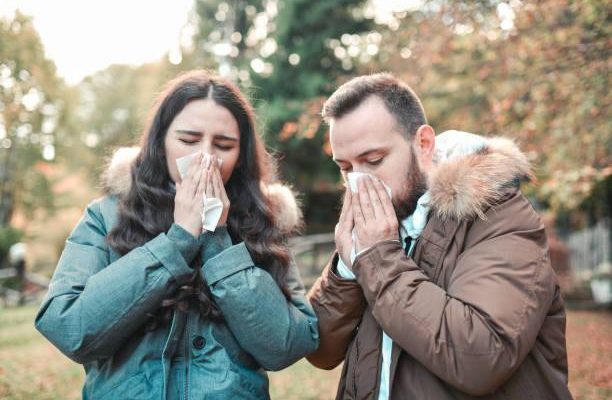By: Nouh Sanusi
In Nigeria, there are usually two seasons that occur throughout the year. The rainy season spans from April to November and the dry season, which we are currently in, starts late November and till March of the following year.
The dry season is usually marked by low rainfall. Consequently, it gives rise to lesser humidity in the atmosphere, and the effect is felt as dry air during breathing. The most prominent feature of the dry season is harmattan. Harmattan is characterized by dry and dusty northeastern trade wind that blows from the Sahara over West Africa into the Gulf of Guinea.
The early part of the morning in the dry (harmattan) season is usually covered with haze or fog and clears up as the day progresses. Also, intense sunlight is felt in the afternoon in most places and in the night, there is a drop in the atmospheric temperature causing cold nights more often.
With the dry season or harmattan comes a lot of respiratory illnesses and as students, it will be a disadvantage to break down with any illness at this point where there are tons of slides to read and a series of tests also knocking on our doors. Knowing the common illnesses that come with harmattan and how we can prevent them will come in handy as we go through the rigour of learning and studying.
Illnesses that come with Harmattan
- Headache
The intense sun that comes out in the afternoon during harmattan causes a headache. Most times, working or doing other activities under the sun without any head covering for a long period can cause headaches. A few times, little exposure to the sun can be a cause of headaches as well.
The headaches caused by the sun sometimes may come with weakness of the body and increased body temperature.
- Catarrh
One of the major ailments or illnesses that come with harmattan and the dry season is catarrh. Catarrh can be mild but in most cases can progress to be worse than expected. It is marked with a blocked nose, frequent need to clear the throat, etc.
Mild catarrh is usually gentle and does not really affect the body in any way. However, if the catarrh has gone worse, it can cause chronic headaches, fever, and many other things.
- Cough
Very close to catarrh is cough, occurring simultaneously most times. Signs of cough may also be a frequent clearing of the throat, shortness of breath, and sore throat. Coughing may also cause headaches and fever if it is prolonged.
- Common cold
Another common illness during harmattan is the common cold. It is a viral infection, contagious, and easily spread through contact with infected surfaces and from one person to another. The symptoms of the common cold include a runny or blocked nose, sore throat, body aches, headaches, fever, etc.
- Allergies
Dust particles and pollen are usually suspended in the air that we breathe in during harmattan. The dust particles make allergic conditions like asthma and conjunctivitis (apollo) recurrent and disturbing.
- Dehydration
Dehydration is not an illness but may aid certain illnesses common during the dry season. Due to the relatively low humidity in the atmosphere, it is easy to get dehydrated during harmattan.
Others include dry skin, chapped lips, and cracked soles of the feet.
Tips to surmount these illnesses
- Washing hands with soap and water
Washing hands with soap and water is not just for the covid-19 period alone. Most of the germs that cause these illnesses are caused because most people’s failure to wash their hands often.
An alternative to that is the use of hand sanitizers which is pretty easy and faster. We urge the health ministers of each hall and the hall management to make them available for use.
- Getting hydrated
Drinking lots of water during the dry season is very essential. We get dehydrated due to the intense sunlight and low humidity in the dry season. Fortunately, drinking water frequently can regulate the temperature of the body, prevent infections, and do many other important things that can help prevent these illnesses.
- Use of face mask
The use of face masks is recommended for anyone that has been infected with a common cold, catarrh, or cough. The use of nose masks helps to stem the spread of any of these illnesses.
In addition, asthmatic patients can also use nose masks to avoid contact with dust particles and pollen that can cause asthmatic attacks.
- Taking fruits
Fruits are sources of essential vitamins and minerals. They can supply the body with nutrients that may help combat certain illnesses or infections during the dry season in addition to the numerous benefits they have to offer.
- Use of caps, umbrellas, or any other head-covering apparel
Due to the intense sunlight in the afternoon, it is advisable to reduce or minimize our exposure to sunlight. It is recommended not to stay long in the sun. However, if it can’t be avoided, the use of head coverings like caps or umbrellas should be of help.



